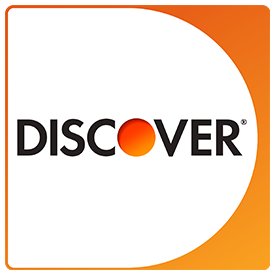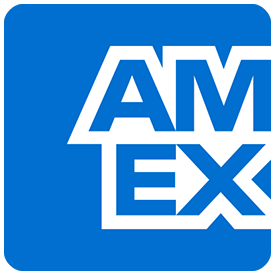Before you Google, “what is the perfect food for my pet” please understand that there is a lot of well-intended misinformation out there. What works for your neighbor’s pet may not be what is appropriate for your pet. What helped your friend’s pet who has the same medical condition as your pet may not be right either. There are many factors that go into preparing a diet plan for each individual pet just as there are many factors that go into preparing a diet plan for a human. You must seek the advice of a veterinarian or veterinary nutritionist who is trained in species appropriate diets. I wish I could say that all veterinarians are thoroughly trained in this field, but sadly, most veterinary schools have little training on the topic of appropriate pet nutrition. Meanwhile, there is still no consensus as to appropriate nutrition for humans, with some still clinging to the outdated and disproven food pyramid. This tells us that there is still much to learn while millions of dollars go into research each year. Somehow though, we believe that “Big Pet Food Industry” somehow figured out the magic recipe for an ideal diet to properly support every pet’s healthy life and put it into a magic brown nugget? I’m skeptical.
Let’s start with what is wrong with feeding dry kibble. Yes, I said it. Kibble is bad for your pet. It’s bad for all pets. There is not one single pet who has ever lived or will ever live who will be as healthy as it could have been if it’s fed dry kibble. That is a big statement, I know. Of course I’ve heard stories of 18 year old labs who ate one brand of discount dog kibble their whole life and never had so much as an off day before they passed. I always question what that pets life could have been if it had been fed appropriately. I feel the same way when I hear that someone’s uncle lived to be 100 and ate bacon for breakfast and smoked three packs of cigarettes a day. My thoughts are, “may the odds be ever in your favor.”
You wouldn’t eat Froot Loops every meal every day of your life and expect to be healthy would you? It may work while you’re young and resilient, but your body will slowly become ill from it. This is what dry kibble is, Froot Loops! It’s lacking bioavailable nutrients for optimal health. It’s loaded with carbohydrates and it’s super processed. “But the bag says it contains 100% of what my pet needs to thrive!!” Well that’s true, sort of.
You see, the label on some of the “higher quality” dog food lists quality ingredients, but is it useable by a pet’s body?
Here is an example of a premium brand kibble:
Deboned chicken, deboned turkey, atlantic flounder, whole eggs, whole atlantic mackerel, chicken liver, turkey liver, chicken heart, turkey heart, whole atlantic herring, dehydrated chicken, dehydrated turkey, dehydrated mackerel, dehydrated chicken liver, whole dehydrated egg, whole red lentils, whole pinto beans, whole green peas, chicken necks, chicken kidney, whole green lentils, whole navy beans, whole chickpeas, lentil fiber, chicken fat, natural chicken flavor, alaskan pollock oil, ground chicken bone, chicken cartilage, turkey cartilage, mixed tocopherols (preservative), whole pumpkin, whole butternut squash, freeze-dried chicken liver, dried kelp, zinc proteinate, kale, spinach, mustard greens, collard greens, turnip greens, whole carrots, whole apples, whole pears, pumpkin seeds, sunflower seeds, thiamine mononitrate, D-calcium pantothenate, copper proteinate, chicory root, turmeric, sarsaparilla root, althea root, rosehips, juniper berries, dried lactobacillus acidophilus fermentation product, dried bifidobacterium animalis fermentation product, dried lactobacillus casei fermentation product.
Do you see anything wrong with this list of ingredients? I think it’s wonderful that they, at least, started with actual food. I think it sounds delicious and nutritious if only it had been cooked properly to maintain the benefits of the ingredients. What about feeding it for every meal, every day, forever? This is where one of the many issues are. It’s okay for most pets to eat a carbohydrate containing meal sometimes. In fact, in the wild, they would eat the contents of a prey animal’s stomach, which are typically vegetables and grains which are pre-digested with enzymes. Yes, these are carbohydrates, but they are also in the presence of vitamin and mineral-rich raw organ meat, raw animal meat and raw bone. They also wouldn’t kill the same prey animal every day and the prey animal they did kill wouldn’t have the same stomach contents. Variety is very important!
Another issue is kibble is not little chunks of meat, even if they have been formed and colored to look like they are. Kibble is a super processed combination of many ingredients and it contains carbohydrates, lots of carbohydrates. “But it says it’s grain-free!” That statement is true. There is not one speck of grain in that grain-free diet listed above. Instead it’s loaded with other forms of carbohydrates such as whole pinto beans, whole green peas, whole green lentils, whole navy beans, whole chickpeas, lentil fiber, whole pumpkin, whole butternut squash, whole carrots, whole apples, whole pears and pumpkin seeds.
Dry kibble contains a large percentage of carbs or otherwise it wouldn’t form those nice little nuggets we feed to our pets. You wouldn’t feed your pet a bowl full of powder would you? Of course not, so dog food companies strive to ensure their kibble sticks together which requires carbs and processing, both of which are a recipe for an unhealthy pet.
The next issue with kibble is the cooking method. Most kibble contains ingredients that have already been high-heat processed prior to being shipped and included in your dog food ingredients. It is then processed and cooked again at very high temperatures for several hours to kill ALL OF THE BACTERIA!!! There is no nutritional value left in it once it’s cooked to obliteration and there is no good bacteria left either. Then, after cooking, it travels on down the assembly line to the vitamin station where it is sprayed with the vitamins listed on the label and so voila! It now does contain the vitamins that are listed on the label. Dog food manufacturers could just as easily use shoe leather and spray it with vitamins. It would nutritionally be just as unusable by your pet’s body. “How do they get away with this???” The FDA checks the food for bacteria and to ensure the listed ingredients are what is in the bag, not for nutritional bioavailability.
https://www.fda.gov/animal-veterinary/animal-food-feeds/pet-food
They try to ensure the food won’t directly kill your dog via toxins. They are not responsible for making sure the food is biologically appropriate, nutritionally balanced nor are they responsible to ensure the nutritional content of the food is bioavailable for your pet.
If you ate McDonald’s cheeseburgers every meal, every day, but took your multivitamin, would your doc be proud of you? Would your lab work reflect your nutritional choices? Would it eventually lead to health issues? The cheeseburgers may be free of toxins that will kill you quickly but no one argues that they won’t kill you slowly if you eat only them every meal, every day, forever. Maybe a few people out of millions have superior genetics which allows them to eat this way their entire lives and never suffer the health consequences but do you really want to take the chance that your pet has those kinds of superior genes?
Why am I picking on grain-free diets? I’m not really. I’m exposing them for what they are. Many manufacturers try to disguise the same old inadequate and super processed kibble by changing the ingredients around and promoting it as healthy. This bothers me!
Yes, ingredients in some brands have improved over the last 10-15 years, but the manufacturing processes for most dry kibbles are the same old tune and so the end result is a more expensive bag of vitamin sprayed shoe leather. To be honest, these grain-full and grain-free diets being promoted as healthy alternatives to budget brands bothers me more than the budget brands themselves because the budget brands know what they are and usually do not try to mass-market their way into being healthy for your pet. They are a cheap way to feed an animal. They will keep it alive if it has strong genetics and a resilient immune system, but it will never have the quality of life it could have had if it had been fed a variety of real, species appropriate, bioavailable food.
Here is an example of a widely available budget kibble:
Meat and bone meal, ground whole corn, ground whole wheat, corn gluten meal, soybean meal, animal fat (preserved with BTA and citric acid, source of omega 6 fatty acids), natural flavor, salt, potassium chloride, fish oil (stabilized with mixed tocopherols), choline chloride, zinc sulfate, vitamin e supplement, ferrous sulfate, zinc oxide, L-Lysine, niacin, copper sulfate, vitamin A supplement, biotin, manganous oxide, d-calcium pantothenate, vitamin B12 supplement, Thiamin mononitrate, pyridoxine hydrochloride, menadione sodium bisulfite complex (source of vitamin K activity), riboflavin supplement, sodium selenite, calcium iodate, folic acid, vitamin D3 supplement, cobalt carbonate.
FYI, beware of any dog food that does not specify what kind of meat is in it. Roadkill anyone???
https://www.dogfoodadvisor.com/dog-food-industry-exposed/euthanized-pets-dog-food/
https://www.fda.gov/animal-veterinary/animal-health-literacy/questions-answers-contaminants-pet-food
https://www.fda.gov/animal-veterinary/safety-health/recalls-withdrawals
I’m also often asked about prescription diets which I always answer the same way, “Read the ingredient label. Would you eat that?” They don’t even try to pretend they have real food in them. Imagine yourself in an upscale restaurant and this is what you were served.
Here is an example of a prescription kibble:
Brewers rice, chicken fat, corn, corn gluten meal, dried plain beet pulp, natural flavors, wheat gluten, fish oil, powdered cellulose, vegetable oil, potassium chloride, calcium carbonate, salt, powdered psyllium seed husk, sodium silico aluminate, DL-methionine, L-lysine, fructooligosaccharides, taurine, choline chloride, vitamins [DL-alpha tocopherol acetate (source of vitamin E), L-ascorbyl-2- polyphosphate (source of vitamin C), biotin, D-calcium pantothenate, vitamin A acetate, niacin supplement, pyridoxine hydrochloride (vitamin B6), thiamine mononitrate (vitamin B1), vitamin B12 supplement, riboflavin supplement, vitamin D3 supplement, folic acid], trace minerals [zinc proteinate, manganese proteinate, zinc oxide, ferrous sulfate, manganous oxide, copper sulfate, calcium iodate, sodium selenite, copper proteinate], magnesium oxide, L-tryptophan, marigold extract (Tagetes erecta L.), rosemary extract, preserved with mixed tocopherols and citric acid.
I find it so sad that prescription diets are meant to improve a pet’s health who is in peril and yet they are void of life-preserving, bioavailable nutrients. How can a sick pet be improved by removing nutrition from them? Are there ill pets who need to limit or eliminate certain ingredients from their diets? Absolutely! Are there sick pets who should be eating brewers rice, chicken fat and corn gluten meal? Absolutely not!
So with all this said, what should you feed your pet?
Stay tuned for the next installment on this topic titled, “Species Appropriate Diets”







